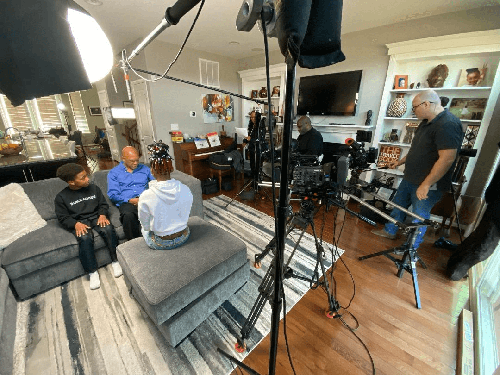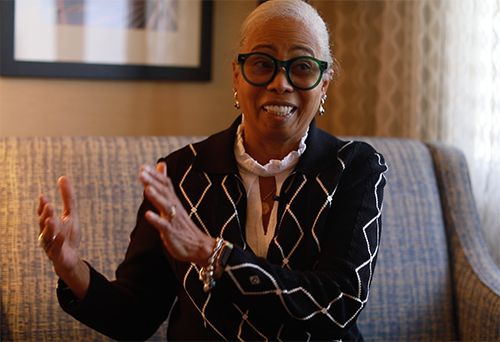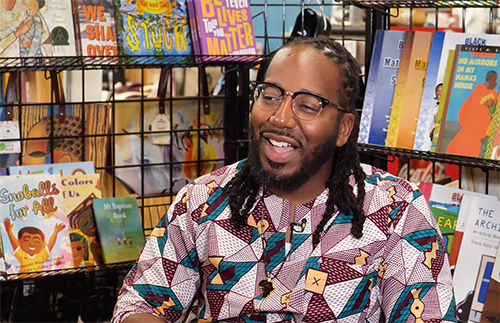UH Professor’s Docuseries on Black Youth Offers ‘Hope’ for Better Schooling

Posted Feb. 28, 2024 — The film opens with news footage of a police officer putting a Black student in a headlock at school and follows with a series of troubling statistics: Suicide rates for Black youth are rising. Federal test scores show Black students rank behind their classmates. And Black students receive harsher discipline than their peers for the same infractions.
To shine a light on the challenges and offer solutions, Kmt Shockley, a professor at the University of Houston College of Education, directed and produced a documentary called “Cultural War: Focus on Black Youth.” The five-part series recently was released on the free streaming app Tubi as well as other paid platforms.
“Throughout the entire docuseries, there is definitely hope,” Shockley said. “What I do is talk about those schools where Black students are successful. The thing most of the people said that is important is putting cultural information about Black history into the schooling process. The other thing is understanding what Black students bring to the classroom, having knowledge of that and focusing on their strengths.”

Many schools, he said, limit teaching about Black historical figures like Martin Luther King Jr. and Harriet Tubman or include lessons only during Black History Month in February.
“Really, it’s good to start in the part of history where people of African descent were not enslaved or colonized — focusing on a trajectory that’s actually uplifting and truthful,” said Shockley, who taught middle school before becoming a professor of education.
To produce the docuseries, Shockley interviewed more than two dozen scholars, principals, teachers, parents and youth across 12 states. The film features many of the most well-known scholars in Black education, including former presidents of the American Educational Research Association — Joyce King, Gloria Ladson-Billings and Carol Lee — and NAACP Director of Education Ivory Toldson.

Shockley grew up in Indiana and went to all-Black catholic schools through eighth grade. At a mostly white, affluent high school, he recalls other students tying his teammates’ athleticism to being Black and mocking him for taking the city bus.
“I can laugh about it now, but…,” he said, his voice trailing off.
A piano major for the first two years in college, Shockley became interested in teaching while working at the YMCA over the summer. So, he switched to an education degree and after graduation taught at a predominantly Black public middle school in Cincinnati.
“The first year of teaching I wondered what was going on,” he said. “I had to think back to my own experience.”
A mentor had exposed him to Black culture and history, and he began introducing his students to books featuring Black characters and less talked about historical figures such as Imhotep, considered the earliest physician in ancient Egypt. Years later, Shockley said, his former students reached out and told him, “I learned so much.”
— By Ericka Mellon
— Photos by Paul DeShield, courtesy of Kmt Shockley